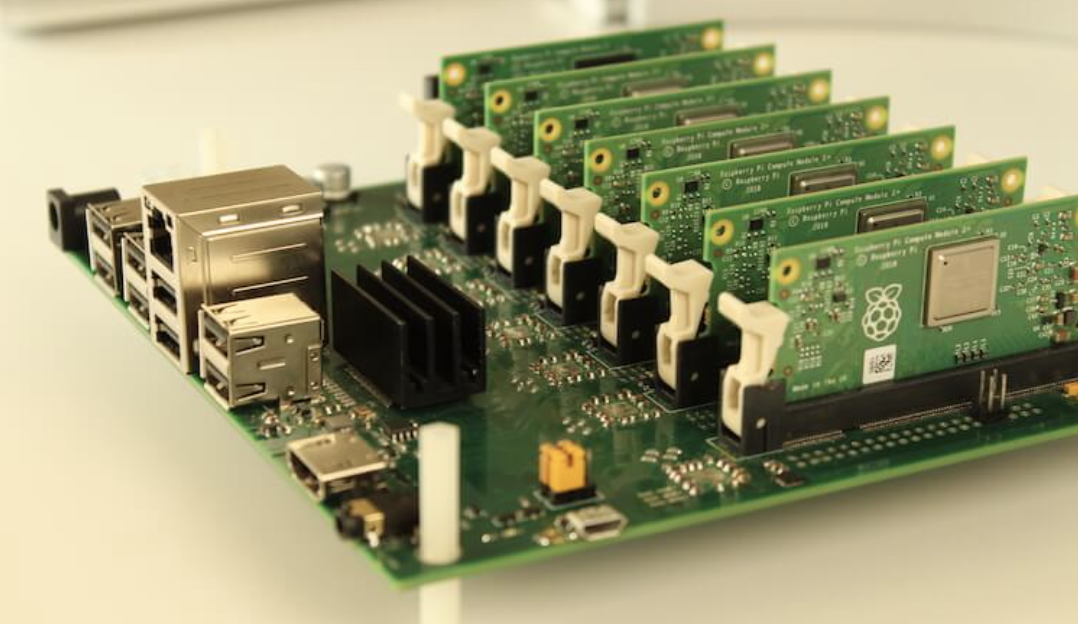RESEARCH: Turing Pi - Plug & Play Raspberry Pi Cluster
Turing Pi
https://www.tomshardware.com/news/turing-pi-raspberry-cluster-board-server
Jeff Geerling’s project blog
https://www.jeffgeerling.com/blog/2020/raspberry-pi-cluster-episode-1-introduction-clusters
https://github.com/geerlingguy/turing-pi-cluster
Raspberry Pi Models
https://www.raspberrypi.org/products/
NOTE: The Turing Pi Cluster uses Raspberry Pi Compute modules which is a minimal footprint version of a full size Raspberry Pi (Not a Raspberry Pi Zero which is an underpowered version).
NOTE2:
Turing Pi is currently taking pre-order for production in July 2020 & delivery in Aug 2020
Raspberry Pi Computer Module 4 is rumored for mid-2020
Raspberry Pi Computer Module 3+ 32GB is priced at $40 as of June 2020
Youtube video instruction
RESEARCH: Building a Super Computer using Cluster of Computers
What is a Super Computer? Is it like a Quantum Computer that solves mathematical problem magically fast? Can we build a Super Computer using bunch of cheap low power computers like Raspberry Pi?
What is a Cluster?
People try to solve very complex problem using computers. The problem may be trying to model millions of water molecules to simulate natural movements of waves, or serve dynamic webpage that is tailored to millions of individual users.
Traditional computers (aka von Neumann architecture) tries to solve this using “Vertical Scaling” which uses ever faster CPU and lots of RAM. Old Super Computer leveraged this type of model costing millions of dollars.
Another approach is using “Horizontal Scaling” which splits up the task and use multiple computers to solve the smaller problems in parallel. Depending on the problem, Horizontal Scaling is more practical and economical solution.
The Horizontal Scaling introduces a unique problem. As the individual computers (aka Nodes) grows in numbers, management of the hardwares and conducting simples tasks like rebooting each computers requires complex coordination.
STATUS:
This page is being used for me to jot down the research questions and findings as I continue with my learning related to super computing and cluster computing. As such, the content of this posting will change over time as I discover new things and change my mind about different things (or more likely, correct myself as I knowledge and thinking matures).
PROJECT VISION AND GOALS
VISION
Around 2015, as the Machine Learning leveraging cluster of computers became more popular, I built a cluster of Raspberry Pi model 3 running Hadoop as a miniature super computer. Up course, all did was to prove that it can be done, but was not fast enough to do anything useful. During the process, I learn a lot about the advantages of parallel or cluster computing and wanted to really understand the technology. I also wanted to artificially put a constraint in terms of hardware (e.g. CPU power and RAM) to focus my learning more on the software and algorithm rather than seeking solution through the faster hardware. As for now, there projects are no more than learning projects, but something tells me that this will eventually lead to something that will be very important in the future. So… as always, I keep moving forward.
GOALS
2019 - Organize my previous projects so it can be documented and serve as a platform for future learning.
2020 - Consolidate and document previous projects and narrow down to a few hardware platforms to serve as a launching point for future research projects.

